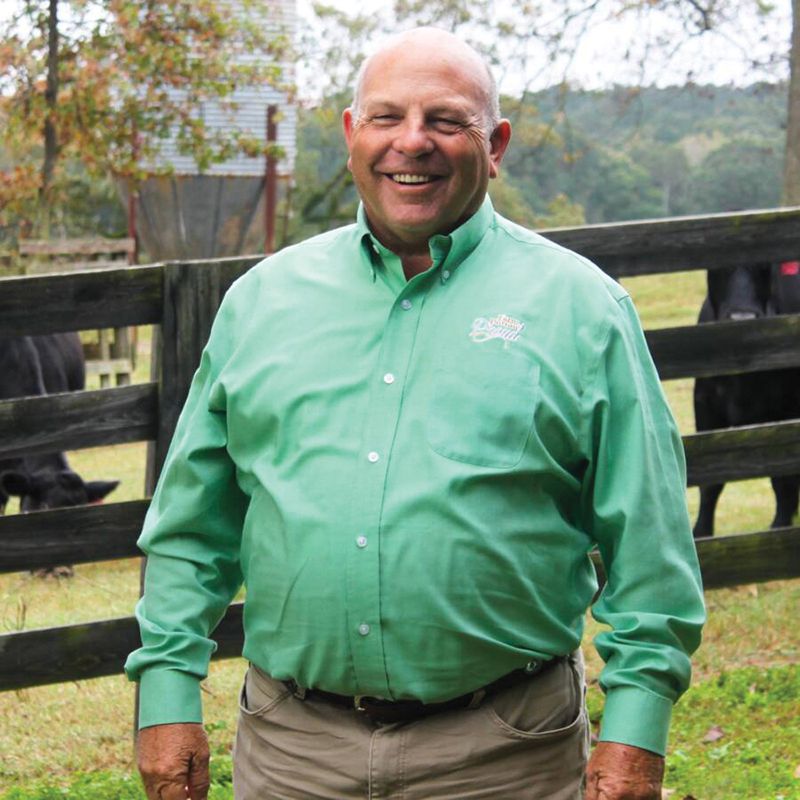5 Minutes With: Zippy Duvall
Published
3/14/2025
 As a young farmer growing up in Georgia, Vincent “Zippy” Duvall never imagined he would one day become president of the American Farm Bureau Federation (AFBF). But since he was elected AFBF president in 2016, he has made a significant impact on members and the larger agriculture community, helping shape the 2018 Farm Bill and pushing back against policies that negatively affect farmers and ranchers.
As a young farmer growing up in Georgia, Vincent “Zippy” Duvall never imagined he would one day become president of the American Farm Bureau Federation (AFBF). But since he was elected AFBF president in 2016, he has made a significant impact on members and the larger agriculture community, helping shape the 2018 Farm Bill and pushing back against policies that negatively affect farmers and ranchers.
He has also previously served as chairman of the Georgia Farm Bureau Young Farmers & Ranchers (YF&R) committee, the AFBF YF&R committee and president of the Georgia Farm Bureau.
“It’s been an honor and privilege to work for the people of this organization across the country,” Duvall says.
Q: Where did the nickname “Zippy” come from?
A: I was born with that nickname. I was my mother’s second child but first C-section, which my dad was worried about. The nurses said, “Don’t worry about it. We’ll just put a zipper in her stomach, and it will be easy next time.” So, I left the hospital nicknamed Zipper and it evolved into Zippy. Everybody calls me Zippy except for the IRS.
Q: Your grandfather started your family’s farm in the 1920s. How has it evolved over the years?
A: The family farm is halfway between Atlanta and Augusta in the rolling hills of Georgia. My grandfather started with 100 acres and got to about 1,200 acres before Georgia Power built a recreational lake that took half of it, so now we’re down to 600. It used to all be dairy. We were milking about 150 cows, but I had to diversify in the 80s when things were tough. I got a loan to build poultry houses, and I’m now on my 37th year of raising chickens. My son and I also operate a beef cattle herd and grow our own hay.
Q: What accomplishments are you most proud of during your time as president of the AFBF?
A: We’ve had the opportunity to build some tremendous relationships around Washington, D.C., and those relationships have paid huge dividends for our membership and farmers and ranchers across the country. I also had a vision for us to be more connected to our 50 member states and Puerto Rico, so I’ve spent a lot of time traveling to visit with farmers. I think that’s demonstrated the value of their Farm Bureau membership and what we’re doing for them across the Federation from the county, state and national levels at the American Farm Bureau.
Q: What are some of the biggest challenges facing farmers today?
A: Labor is the number one issue. Looking at immigration reform at the federal government level, we have to make sure that any farm labor and guest worker program developed is workable for our farmers, meaning it’s year-round—not just seasonal—and the wage rate is competitive and economically sustainable. It has to be good for the farmer and good for the employee.
Q: What most excites you about the future of the AFBF?
A: I’m excited about where we’re at now. We’ve just come off a year where we had a record number of contacts to Congress in Washington from our members, and that engagement is what makes us successful. What really makes the needle move is when our grassroots members get engaged. They are the heart and soul of this organization. We just lay the groundwork for them. We’re more relevant and needed today than we were 105 years ago when this organization started, and our voice is more valuable. The more we tell our story, the stronger we get.